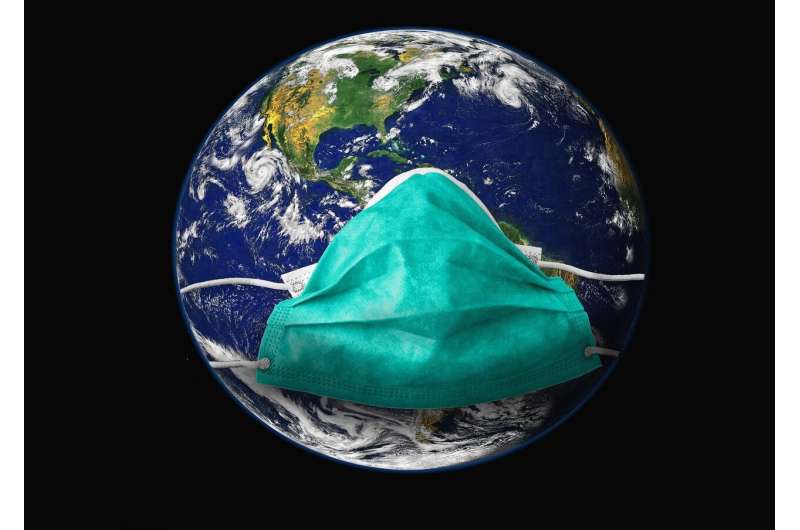Credit: CC0 Public Domain
Masks became mandatory on public transport and small businesses began accepting customers by appointment on Monday as Spain moved towards a commercial reopening for the first time since the virus lockdown began in mid-March.
Spain's almost 47 million residents have been confined to their homes for more than 50 days to slow the spread of the deadly virus, which has so far claimed 25,428 lives according to official figures.
But the daily death rate has been falling steadily with 164 deaths counted on Monday, the same number as Sunday—and a far cry from the 950 lives lost on a single day in early April, when experts believe the epidemic peaked.
The number of new cases also fell to 545 on Monday, the lowest figure since the lockdown began on March 14.
Spain's state of emergency has been extended several times with Prime Minister Pedro Sanchez's government looking to secure another extension beyond May 11—despite growing political dissent.
Failing to support such an extension "could bring chaos to Spain's health system and its economy", warned Transport Minister Jose Luis Abalos shortly after Sanchez held talks with opposition leader Pablo Casado.
"We cannot support extending the state of alarm," Casado tweeted after the talks. "If the constitution limits the state of alarm to 60 days, it shouldn't be extended beyond that."
Spain began transitioning out of its lockdown on April 26 when it allowed children outside for an hour a day, with the measure extended this weekend to adults who can now go out for a brief walk or exercise alone.
The government has said the restrictions will be gradually lifted in a four-phase process that will be completed by the end of June, with the country already engaged in the first preparatory stage.
'A bit chaotic'
On Monday, new rules went into effect on public transport, with police and civil protection officers handing out millions of masks at stations across the country to ensure commuters complied.
"We remind you that it is obligatory to wear a mask, whether travelling on a train or anywhere inside the transport system," said a message over the loudspeakers at Sol station in central Madrid, which serves the metro and interurban trains.
On Monday, easing measures went into effect for some small businesses with premises no larger than 400 square metres (4,300 square feet), which can now receive customers with a reservation.
High on many people's list was a trip to the hairdresser to tame an unruly mane after seven weeks stuck at home.
"Today it's a bit chaotic with all the clients phoning for an appointment and trying to fit them all in," said Conchi Navarro, 56, who has just reopened her Barcelona hair salon.
"Nothing is normal. We're all a bit nervous about making sure we stick carefully to all the rules," she said from behind her mask, her glasses slightly steamed up after applying a tint to a client's hair.
"It's important to show we're doing it well so that the client doesn't feel afraid."
According to the guidelines, a business can allow in one customer per employee, both must wear masks and any items used, such as scissors or combs, must be disinfected afterwards or thrown away.
Few other businesses could be seen taking advantage of the new rules, although one was Rosario Montalvo, 59, who opened her haberdashery shop after several regulars got in touch.
But the idea of making an appointment was "a bit of a joke". "People book an appointment at a hairdresser but not here to buy some ribbon or thread," she told AFP
Restaurants will also benefit—until now, deliveries have been allowed but from Monday they can also offer meals that customers can come and collect in person.
Not everyone was at ease with the rollback, with Madrid X-ray technician Eduardo Esquibel worrying about a fresh outbreak.
"That's my fear, that people are just not aware enough and that it will happen again," he told AFP.
© 2020 AFP























